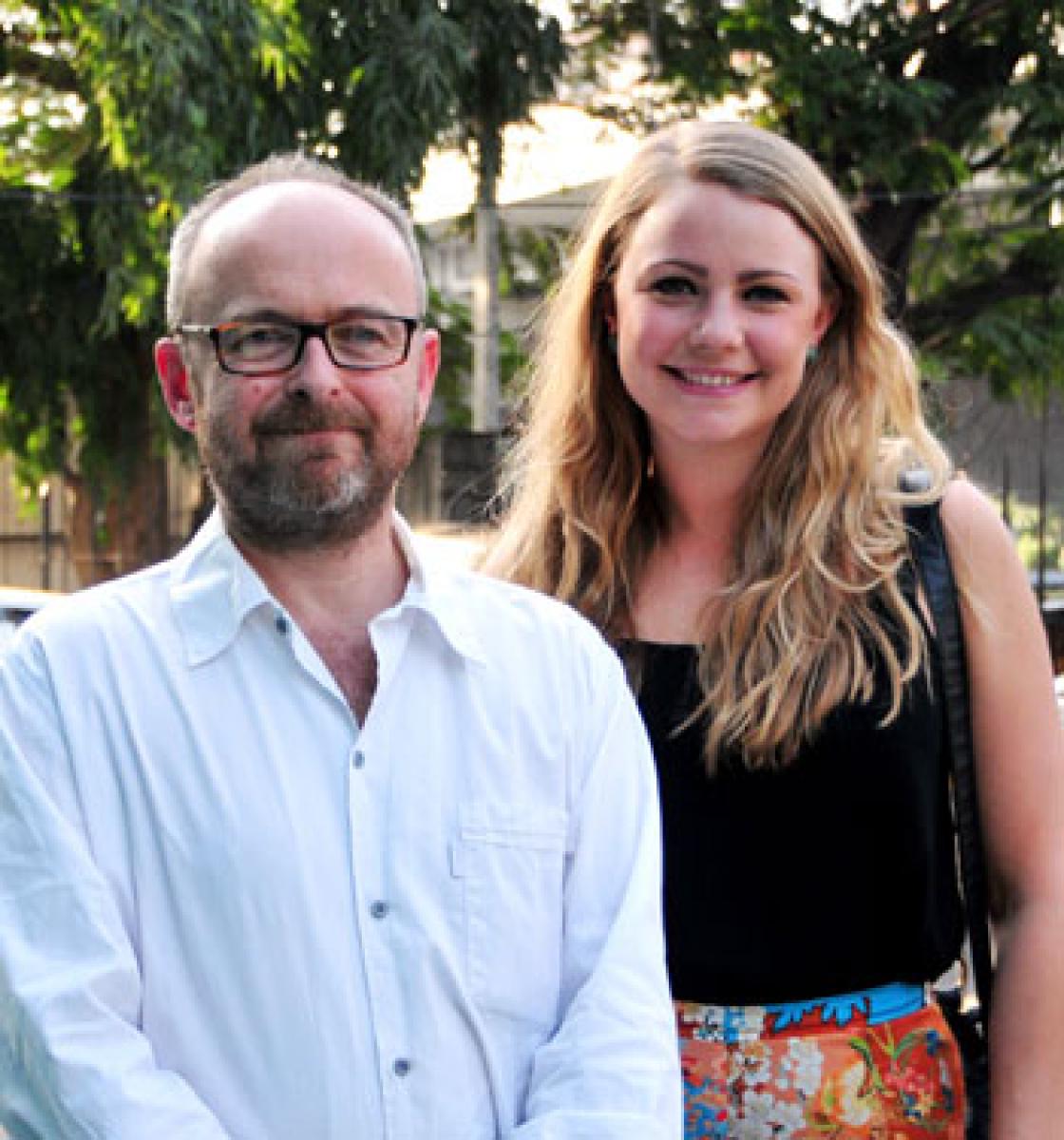Live
- Tunisia dismantles human trafficking network near capital
- Why outdoor play essential for children’s development
- Family and cricketing fraternity extends tribute to Philip Hughes on his 10th death anniversaryFamily and cricketing fraternity extends tribute to Philip Hughes on his 10th death anniversary
- Antonio Guterres calls for peace, upholding UN values
- Moroccan king urges 'decisive action' to achieve ceasefire in Palestinian territories
- Lieutenant General Karanbir Singh Brar Reviews Operational Readiness and Welfare at HQ TASA
- Hyundai Motor to buy back $716 million in shares to enhance shareholder value
- ED arrests two directors of Prayag Group in chit fund case
- RG Kar case: CBI focuses on lapses in autopsy report to establish evidence tampering
- DMK's 2026 election preparation, tasks workers to spread awareness about welfare schemes
Just In

Over a decade, Shakespeare’s 17th century play, Twelfth Night, written somewhere during 1601-02, has been staged by UK-based Filter Theatre more than 700 times. Other than the home country, the cast and crew have travelled all over the world into countries like Spain, Holland, Belgium etc.
 Over a decade, Shakespeare’s 17th century play, Twelfth Night, written somewhere during 1601-02, has been staged by UK-based Filter Theatre more than 700 times. Other than the home country, the cast and crew have travelled all over the world into countries like Spain, Holland, Belgium etc.
Over a decade, Shakespeare’s 17th century play, Twelfth Night, written somewhere during 1601-02, has been staged by UK-based Filter Theatre more than 700 times. Other than the home country, the cast and crew have travelled all over the world into countries like Spain, Holland, Belgium etc.
Nothing, however had prepared them for the kind of experience they had in India, where they landed on November 22, at New Delhi and have travelled all over, the last stop being Bhubaneswar staging their famed production where they had an audience of 7000 which comprised tribal school children. Having arrived at Hyderabad for their two shows on December 11 and 12, under the auspices of the British Council in the city, a part of the crew of six actors, two musicians and a stage manager interacted with the local media.
“We were supposed to be headed to Chennai, but the flood situation there turned us to this city,” said Simon Reade, producer who was present at the venue along with Amy Merchant, a professional theatre artiste who is in India for the first time.
The three-week stay in India, traversing through various demographic zones has just about confirmed a few deeply-held beliefs that the duo have had about the country: one that of glaring disparities, a co-existence of chaos and calm, more rule than the exception. As Amy Merchant says, “We have not been around the cities where we performed to really have a feel of what India is all about. Still, the vibes have been warm and we feel gratified.”
When asked how much did they have to tweak the production to suit the viewing sensibilities of a country’s audience where they had never performed before, Simon Reade is forthright; he went onto say, “The energy levels of the people who watched us for 90-minutes without an interval was just an exhilarating experience. The youngest in the audience, around 14 years were as focused as the older ones. Our presentation, which is a rock-and-roll remix of Shakespeare’s most loved comedy, I reckon, has successfully brought the child out of older people and the hidden levels of adult understanding among the teenagers.”
With the young all over the world moving away from traditional forms of performing arts and becoming tech-dependent, how much more challenging is it for theatre to match expectations? The Filter Theatre folks undoubtedly agree with the basic premise that theatre is no more the way it was, anywhere in the world.
As Amy says, “Discovering talent and presenting them before the audience is a trend of the past. I have been in theatre for two years now, having graduated from the University of Leeds in English Literature. I later went on to do a course in London Academy of Music and Dramatic Arts, which is how it needs to be to make a mark in this field.”
Another interesting aspect of the play is that they have had the liberty to make the roles gender-neutral, by and large, where the truth of the character is more important than race, ethnicity or sex. Amy herself plays three roles, in which she impersonates a male, with the typical swagger of a 17th century English man, to telling effect, if Simon is to be believed.
At Shilparamam, the team expects a young crowd, like how they have found it their USP all over the country. ”As we travel to the US after our Indian engagements, we will go back with the unchallengeable fact that we will never have such a large turnout anywhere else in the world, never ever,” Reade concludes.
With the Twelfth Night, Shakespeare lovers will have every reason to rejoice, especially those who have read him in books and have seen the regional translations enacted as plays and monologues. It cannot get more English than this, one can surely conclude.

© 2024 Hyderabad Media House Limited/The Hans India. All rights reserved. Powered by hocalwire.com







